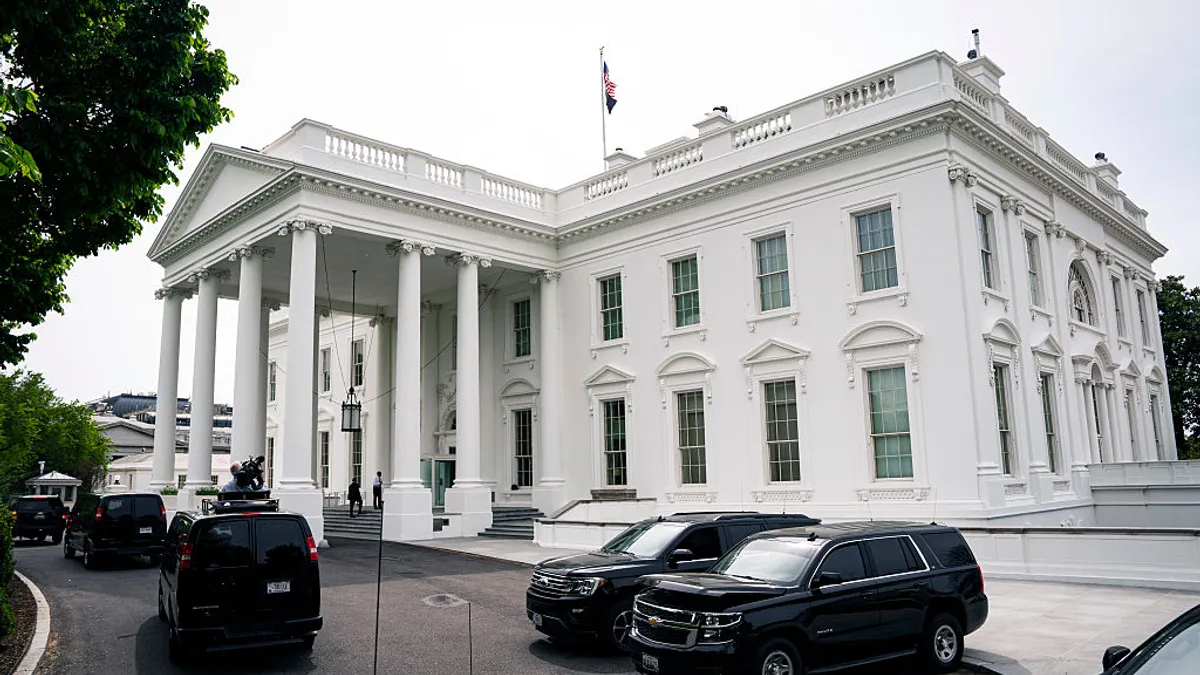Teachers have more job satisfaction and are more effective in the classroom when they work for a principal who has high emotional intelligence, Yale University Professor Marc Brackett said Monday at a lunchtime session, kicking off the ASU+GSV Summit in San Diego.
“You can’t just try to develop emotional skills in an unhealthy environment,” Brackett said, adding that the emphasis on emotions must extend to school policies, family engagement efforts and after-school programs.
While the annual event brings business leaders and investors together with experts in higher education, preK-12, educational technology and workforce preparation to discuss innovative learning and career pathways, the opening presentation was clearly non-technical.
“The state of stress in our nation is the worst it’s ever been,” Brackett said, adding that emotions affect students’ cognitive and decision-making skills. “Children and adults understand that how they feel drives their performance.”
Highlighting research on high school students, college students and those in the workplace, the founder of the Yale Center for Emotional Intelligence said he’s worked for 20 years to get schools to take a more systemic approach to social-emotional learning (SEL) and to move away from assemblies and other one-shot strategies.
The center created RULER, an SEL program used by over 2,000 U.S. schools that teaches students to recognize, understand, label, appropriately express, and regulate their emotions.
Entrepreneurs debate what personalized learning really means
One of the most well-attended sessions of the afternoon featured a spirited conversation over the shifting role of teachers in classrooms using online personalized learning platforms.
Larry Berger, the CEO of Amplify — who recently “confessed” that he has changed his mind about the ability of algorithms to personalize learning in the same way teachers can — said that while such platforms are getting better, the process is taking a lot longer than most venture capitalists would like to see.
“We have done an awful lot of investing in the kind of personalization that computers are good at,” but not as much in what learning what teachers do best, he said.
He also criticized models in which students in the same class end up reading different texts or completing different assignments because the computer says they are at different levels. It’s important for students, he said, to have a “communal experience” when reading something like the Declaration of Independence.
“What teachers have always done is scaffold,” he said.
Joel Rose, the co-founder and CEO of New Classroom Innovation Partners — which delivers its Teach to One: Math program to thousands of students per day — responded that personalized learning is not just about a specific product.
“You’ve got to reimagine the whole classroom itself,” he said.
He described schools in which students attend math class in large open spaces, find their name on a board as if they were waiting for a seat on a plane, and then either work on a computer, with peers or participate in a teacher-led lesson. In a rotational model, he said, the teacher has to be the “designer.”
He countered Berger’s comments by adding that it's a "waste of time" if a student can’t “access” the curriculum material being taught, and that school should “not be the same what and the same how for every kid, every day.”
Nick Gaehde, the president of Lexia Learning — a literacy program now in 12,000 schools — said personalized learning is much more than just online programs for students. It’s also about giving teachers “the right data at the right time” and connecting with families so they can gain more “knowledge about what kids need.”
He added that an advantage of personalized learning technology is that it allows students to take risks that they never would in a typical classroom setting.
From a higher education perspective, technology allows instructors to personalize learning in a way that the traditional lecture model never could, said Phil Regier, the university dean for Educational Initiatives and the CEO of EdPlus at Arizona State University.
Phyllis Lockett, the founder and CEO of LEAP Innovations, a nonprofit based in Chicago, moderated the session, stressing that it’s important for teachers to be closely involved in developing and expanding personalized models.
‘A great piece of legislation’
The first day of the conference closed with a “fireside chat” in which former President George W. Bush, interviewed by OZY Media co-founder and CEO Carlos Watson, reflected on decisions made during his administration and commented on current international and domestic issues, including immigration and unrest in the Middle East.
Even though his signature education policy has been criticized for labeling schools as failures and increasing the emphasis on standardized testing, he called the No Child Left Behind Act “a great piece of legislation” because it required districts to measure the performance of student subgroups.
“In return for money, people had to show results,” he said. “Someone finally came along and said 'Let's measure.' If it’s not working, it needs to change.”
While he agreed that maybe the law led to “over-testing,” he said there was a “trust in teachers and administrators being able to adjust so their kids can learn.”
He refused to answer any questions about his successors, but did offer: “The office of the president is bigger and more important than the occupant.”







 Dive Awards
Dive Awards














